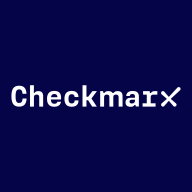


Veracode and Checkmarx One are two prominent tools competing in the secure software development category. Checkmarx One seems to have the upper hand thanks to its efficient handling of false positives and its dynamic developer training platform, Codebashing.
Features: Veracode provides robust static analysis for multiple languages, scalable APIs, and IDE integrations, also featuring Greenlight for early code assessments and superior third-party library support. Checkmarx One offers its Codebashing platform for developer training, broad language support including newer languages, and excels in real-time scanning for fast-moving development environments.
Room for Improvement: Veracode experiences longer report processing times and higher false positive counts, with concerns about its outdated user interface and limited language support for newer integrations. Checkmarx One lacks strong mobile application support and a fully matured DAST, alongside user interface complexity issues and cumbersome CI/CD integration setup. Reducing false positives and enhancing API integration are also noted areas for improvement.
Ease of Deployment and Customer Service: Veracode is predominantly used in public cloud settings with easy scalability and tool integration, yet limited private cloud options. Checkmarx One provides flexible on-premises and cloud deployments, suitable for enterprises needing rigorous security measures. Both products have strong customer support, with Veracode facing occasional slow resolution times while Checkmarx One users value the hands-on support despite needing more real-time developer help.
Pricing and ROI: Veracode is priced higher, often seen as costly for smaller enterprises but justified by its extensive features and security benefits, with a flexible licensing model. Checkmarx One, though still expensive, offers good value for enterprises with consumption-based licensing options. Both tools contribute to ROI through reducing vulnerabilities and speeding up security compliance, although Veracode is slightly better in long-term operational savings.

| Company Size | Count |
|---|---|
| Small Business | 6 |
| Midsize Enterprise | 1 |
| Large Enterprise | 2 |
| Company Size | Count |
|---|---|
| Small Business | 32 |
| Midsize Enterprise | 9 |
| Large Enterprise | 46 |
| Company Size | Count |
|---|---|
| Small Business | 69 |
| Midsize Enterprise | 44 |
| Large Enterprise | 115 |
Cortex Cloud by Palo Alto Networks provides comprehensive cybersecurity management, focusing on enhancing security operations with advanced automation and threat intelligence, addressing complex security challenges efficiently.
Cortex Cloud by Palo Alto Networks integrates cloud-scale data analytics and automation to streamline security operations, enabling faster threat detection and response. It leverages AI and machine learning to provide real-time threat intelligence and automate routine tasks, reducing the burden on security teams. Users benefit from improved visibility across networks and greater operational efficiency, making it crucial for enterprises aiming to secure their digital assets against evolving cyber threats.
What are the key features of Cortex Cloud by Palo Alto Networks?
What benefits or ROI should you expect from Cortex Cloud by Palo Alto Networks reviews?
Cortex Cloud by Palo Alto Networks is favored in sectors like finance, healthcare, and telecommunications, where data security is paramount. Its ability to integrate with existing infrastructure and provide real-time insights makes it a preferred choice for securing sensitive information and ensuring compliance within industry regulations.
Checkmarx One is an enterprise cloud-native application security platform focused on providing cross-tool, correlated results to help AppSec and developer teams prioritize where to focus time and resources.
Checkmarx One offers comprehensive application scanning across the SDLC:
Checkmarx One provides everything you need to secure application development from the first line of code through deployment and runtime in the cloud. With an ever-evolving set of AppSec engines, correlation and prioritization features, and AI capabilities, Checkmarx One helps consolidate expanding lists of AppSec tools and make better sense of results. Its capabilities are designed to provide an improved developer experience to build trust with development teams and ensure the success of your AppSec program investment.
Veracode is a leading provider of application security solutions, offering tools to identify, mitigate, and prevent vulnerabilities across the software development lifecycle. Its cloud-based platform integrates security into DevOps workflows, helping organizations ensure that their code remains secure and compliant with industry standards.
Veracode supports multiple application security testing types, including static analysis (SAST), dynamic analysis (DAST), software composition analysis (SCA), and manual penetration testing. These tools are designed to help developers detect vulnerabilities early in development while maintaining speed in deployment. Veracode also emphasizes scalability, offering features for enterprises that manage a large number of applications across different teams. Its robust reporting and analytics capabilities allow organizations to continuously monitor their security posture and track progress toward remediation.
What are the key features of Veracode?
What benefits should users consider in Veracode reviews?
Veracode is widely adopted in industries like finance, healthcare, and government, where compliance and security are critical. It helps these organizations maintain strict security standards while enabling rapid development through its integration with Agile and DevOps methodologies.
Veracode helps businesses secure their applications efficiently, ensuring they can deliver safe and compliant software at scale.
We monitor all Application Security Tools reviews to prevent fraudulent reviews and keep review quality high. We do not post reviews by company employees or direct competitors. We validate each review for authenticity via cross-reference with LinkedIn, and personal follow-up with the reviewer when necessary.